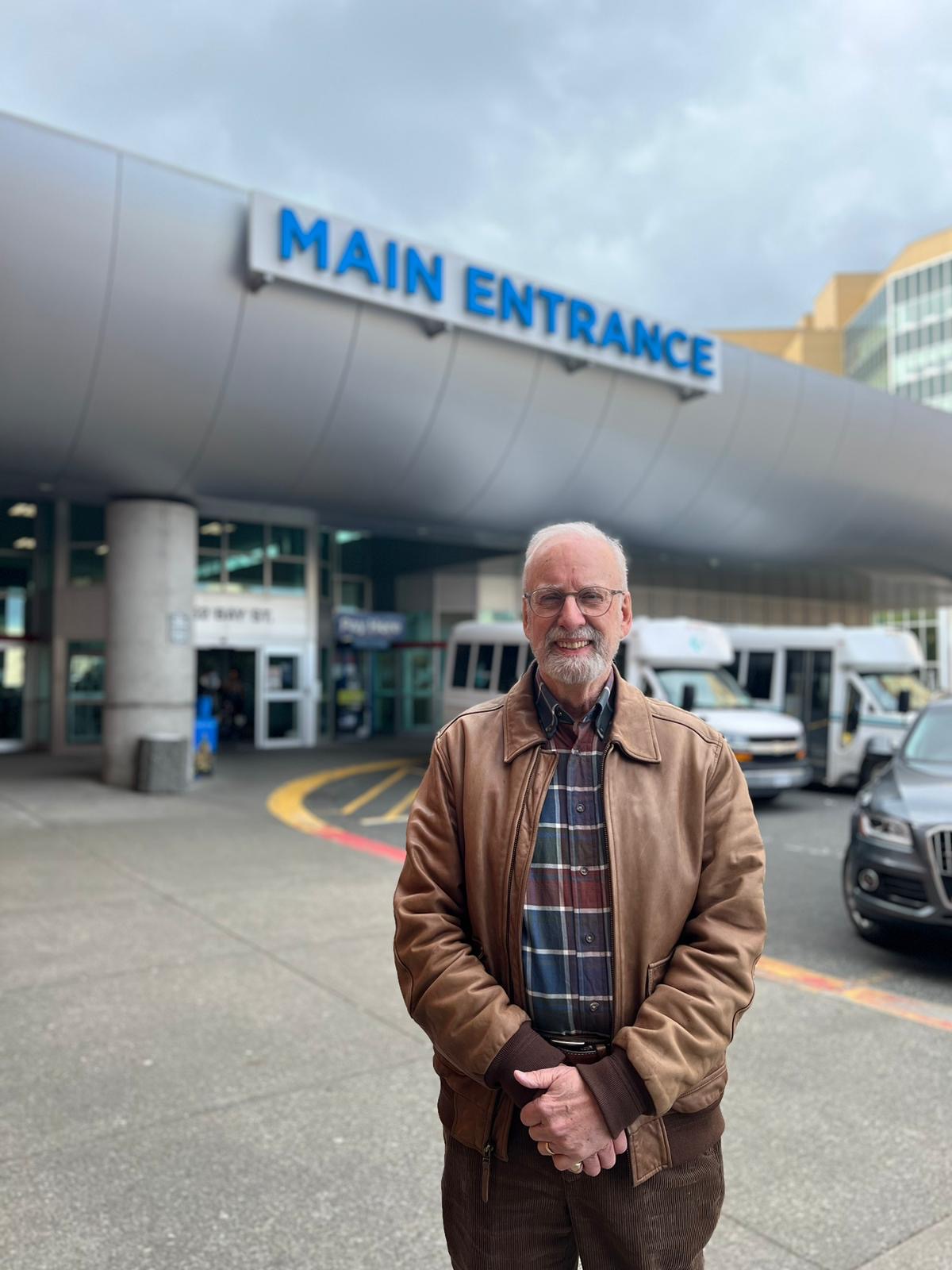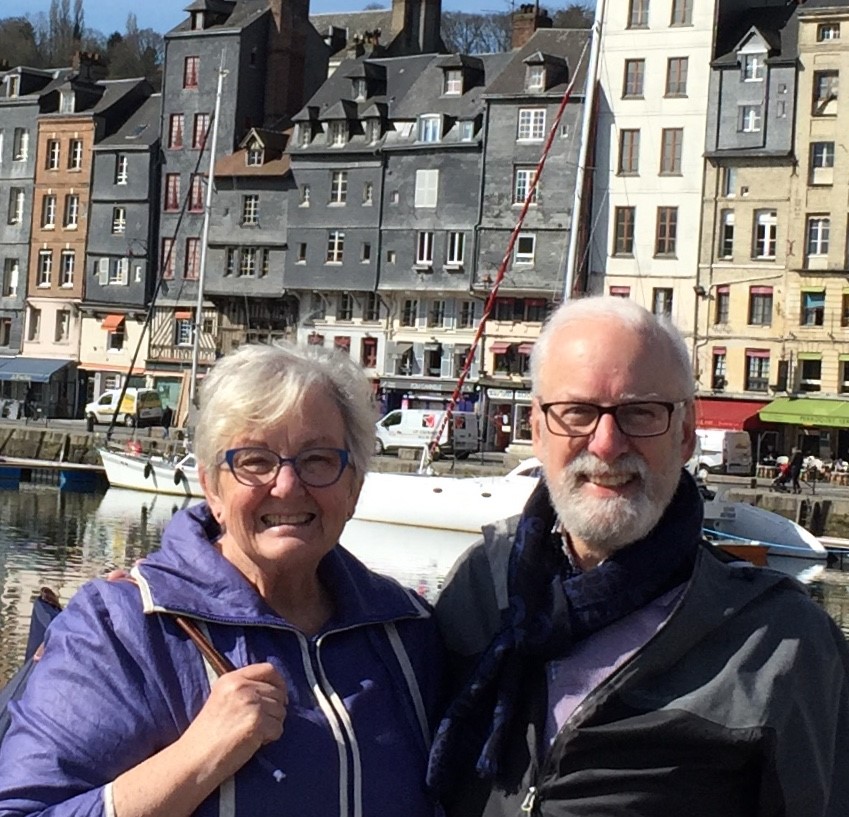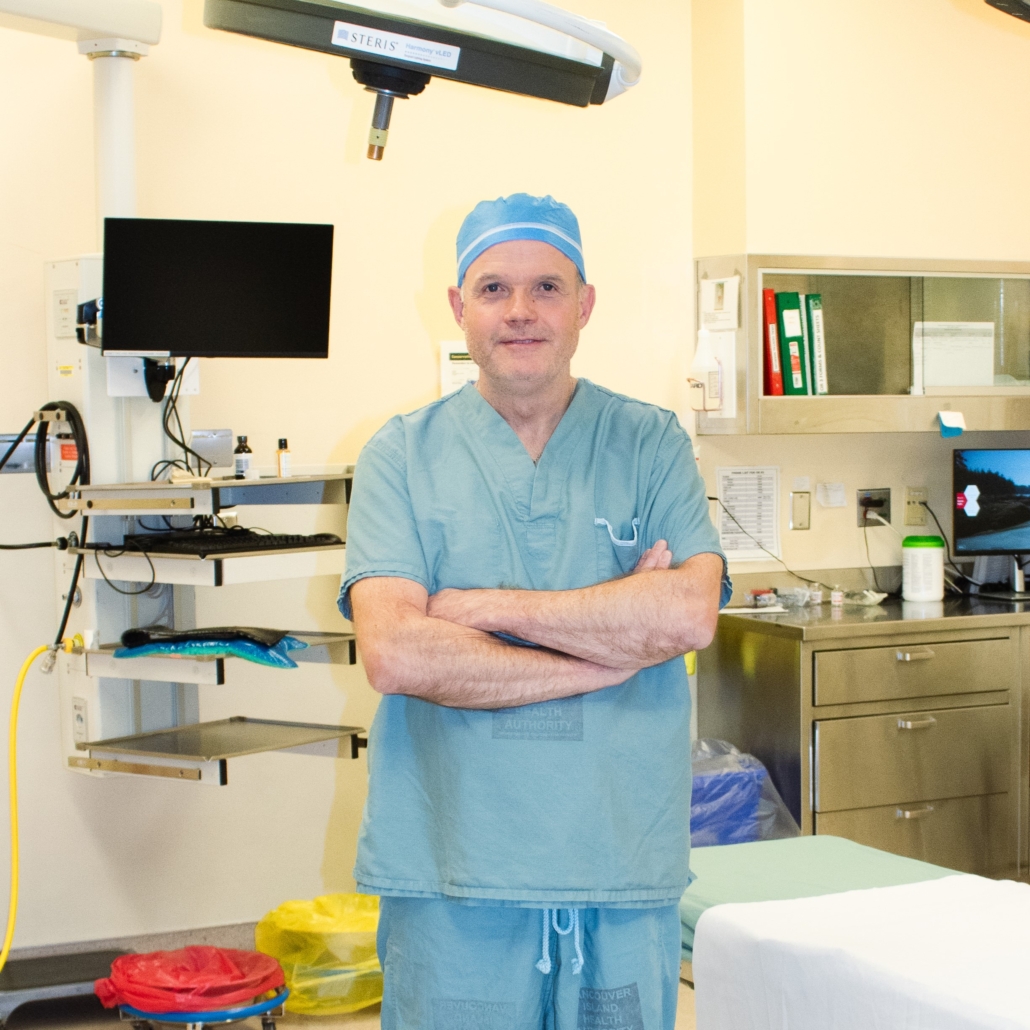
Since being diagnosed, I have never felt like I was fighting a battle against cancer—instead, I have felt I am on a healing journey, well accompanied along the way. My care teams, my home team, some luck, and medical imaging scans have had my back in this unpredictable journey that is life.
Over the years, I have gotten to know Royal Jubilee Hospital very intimately. In the summer of 2017, after several sleepless nights with a sharp pain in my side, my family doctor sent me in for imaging. Serendipitously, the symptoms had nothing to do with what the CT scan would uncover: shadows in my bladder that would lead to the diagnosis of bladder cancer.
That could be a story all in itself: imaging guided my diagnosis, and my treatment too—a transurethral resection of the bladder tumor. The procedure was performed by Urologist Dr. Iain McAuley, someone I now respect deeply and is an important figure in my life. But there’s more to my story: after pain in my side showed up again two years later, a follow-up CT scan revealed I had a mass in my pancreas that was not present on the earlier scan.
My mother died of pancreatic cancer. I was all too familiar with the disease and got my affairs in order. But, thanks to the once-again unrelated side pain, and the once-again relevant CT scan, my pancreatic cancer was caught early. “That is a very early case of cancer, one we would have never caught based on symptoms alone”—I was told by my surgeon Dr. Alison Ross, another prominent figure in my journey, before she removed the tumour by minimally invasive laparoscopic surgery.
I owe my life to Dr. McAuley, Dr. Ross, every technologist who imaged me, every scan, and my tailored chemotherapy treatment.
I also owe my life to continuous imaging—especially since bladder cancer is highly recurrent. Every three months, I have a cystoscopy done at the Jubilee, where a scope is inserted into my bladder to monitor my condition. Three years after I celebrated being cancer-free, it detected new growths and triggered another procedure to remove tumours in my bladder.
I recently learned that five cystoscopes, the fiberoptic scopes required for cystoscopies, were funded by Foundation donors last year—my life is truly better for it. That’s why I have now become a donor myself, and why I am supporting a campaign that supports equipment needs in our hospitals.

If I can leave you with one thought, it is this: our hospitals may be under a lot of pressure, but when you have a serious concern, they respond. Don’t ignore your symptoms, hug your loved ones, and, if you can, join me in supporting this great cause.
Thank you,
James Anglin
PhD, husband, grandfather, Deep Cove resident, grateful patient, new Foundation donor





